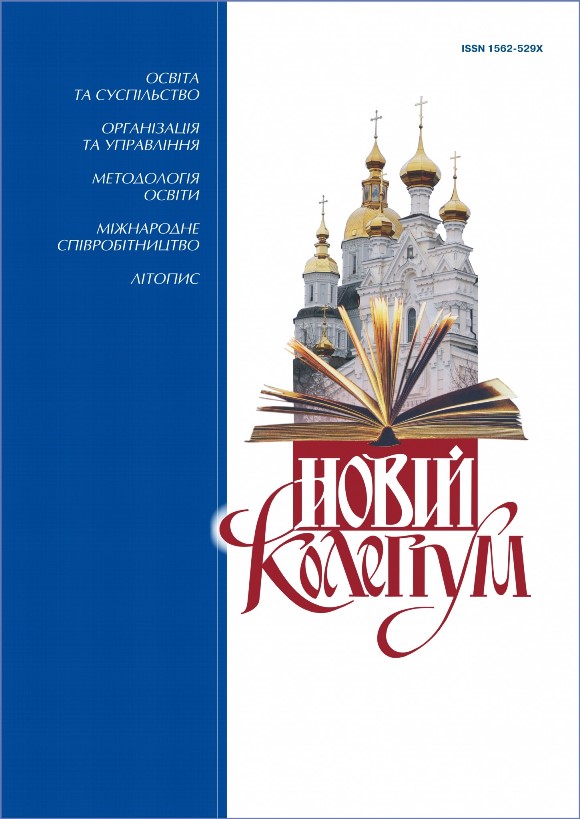Distance education in Ukraine under martial law
DOI:
https://doi.org/10.30837/nc.2023.3.18Keywords:
distance education, quality of education, online education, martial law, teaching methodology, questionnaireAbstract
The article is devoted to the study of the problem of distance education in Ukraine in wartime conditions. The points of view of foreign researchers regarding distance education in the conditions of the COVID-19 pandemic are considered. The most important factors affecting students' satisfaction with online learning are highlighted. The authors emphasize the need for digital literacy for effective and efficient work. Ukrainian researchers analyze a year of work in wartime conditions, find out the advantages and disadvantages of distance learning. The advantages include: the individual nature of training, which allows you to choose a convenient time and pace of training; the format of a single educational environment, convenient for all categories of students; the opportunity to study in more than one direction in a short period of time; the opportunity to continuously improve your qualification level; saving time due to the absence of travel expenses, etc. Disadvantages include: poor Internet quality; power outages; danger to life and poor living conditions in the occupied territories; loss of time due to sirens and the need to go to shelter; insufficient number of distance courses, presentations and video materials on complex topics and others. A significant number of foreign students of the National Technical University "KhPI" have no problems with online learning. They learn the program and participate in student scientific conferences. Students of the Kharkiv State Academy of Design and Arts are forced to live in different countries and living conditions. They took part in an anonymous survey, which was conducted in order to identify problems and assess the quality of the distance educational process of the first (bachelor) level of higher education.
References
Савицький М.В. Вища освіта в умовах війни: напрацьовуємо спільні рішення // Освіта в умовах війни: реалії, виклики та шляхи подолання : матер. ІІ Форуму академічної спільноти. Дніпро : ДВНЗ «ПДАБА», 2022. С. 7 – 9.
Уфімцева О.Ю. Переваги та недоліки дистанційного навчання в сучасних умовах / О.Ю. Уфімцева, Н.М. Шапа // Освіта в умовах війни: реалії, виклики та шляхи подолання : матеріали ІІ Форуму академічної спільноти. Дніпро : ДВНЗ «ПДАБА», 2022. С. 39 – 40.
Уфімцева О.Ю. Розробка методики оцінки ефективності впровадження електронної освіти // Соціально-гуманітарний вісник. Харків : СГ НТМ «Новий курс», 2018. Вип. 24. С. 81 – 82.
Carroll J. Teaching needs teachers. The Weekend Australian, 2022.
Naidu S. In the wake of COVID-19. A time to rethink and reengineering systems // Distance education. 2023. Vol. 44. Р.1 – 5.
Waller R.E., Lemoine P.A., McCormack T.J., Garretson C.J. & Richardson M.D. Resiliency: A necessary skill for global higher education leaders during COVID-19 // International jour. of Education humanities and Social Science. 2020. Vol. 3(6). Р.55 – 67.
Waterhouse Ph., Samra R., Lucassen M. Distance education srudents` satisfaction: Do work and family roles matter? // Distance education. 2022. Vol. 43. № 1. Р. 56 – 77.

